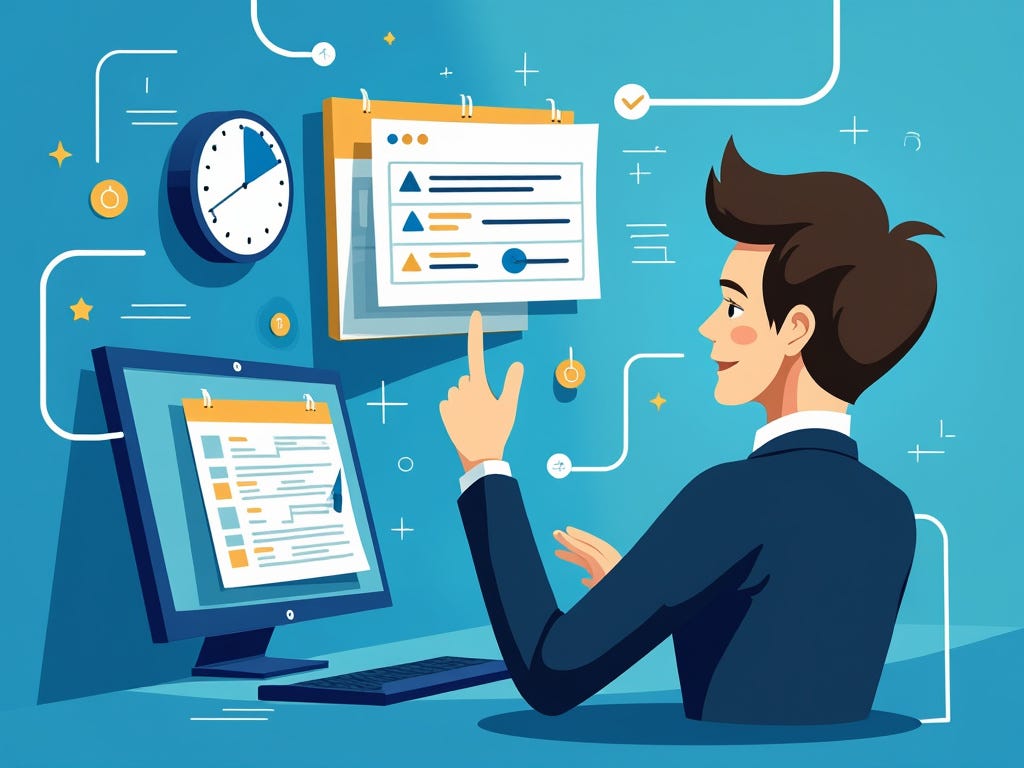How AI Agents are Revolutionizing HR—and How to Get Ready
An AI agent is not just another chatbot or fancy automation tool. Think of it as an assistant—but one that never sleeps, can process massive amounts of data in seconds, and adapts its knowledge continuously. Imagine having an HR assistant that works tirelessly to analyze employee engagement data overnight and provide actionable insights by morning. It's here to help with decision-making, suggest next best actions, and streamline processes that were once bogged down in spreadsheets and paperwork.
What Can an AI Agent Do for HR?
Act as a Virtual Career Coach: Analyzes employee skills and suggests training programs. How: The AI agent uses machine learning algorithms to assess employee skill sets based on their performance data, job history, and interests, and then matches them with relevant training opportunities.
Assist Managers in Making Data-Driven Decisions: Helps with promotion decisions by analyzing historical data. How: It analyzes historical employee data, including performance reviews, peer feedback, and project outcomes, and provides recommendations based on predefined criteria to help managers make informed decisions.
Optimize HR Processes: Coordinates workflows, like an air traffic controller. How: The AI agent can integrate with HR systems to automate workflows, ensuring tasks such as payroll, benefits administration, and compliance checks are completed accurately and on time.
Automate Employee Queries: Provides instant answers to HR questions. How: The AI agent uses natural language processing (NLP) to understand employee questions and pull answers from an internal knowledge base, providing immediate responses without human intervention.
Provide Workforce Insights: Identifies trends that may go unnoticed. How: By continuously analyzing data across the workforce, the AI agent can detect trends such as rising attrition rates, skill gaps, or shifting engagement levels, allowing HR teams to proactively address potential issues.
Analyze Employee Engagement in Real Time: Delivers actionable insights to improve satisfaction. How: The AI agent collects and evaluates employee survey data, sentiment analysis from communications, and other engagement metrics in real time to identify areas where interventions might improve satisfaction and productivity. For example, the AI can monitor employee sentiment continuously and alert HR in real time when negative trends are detected, allowing HR to take immediate action to address issues before they escalate.
Streamline Administrative Tasks: Schedules interviews and manages time-off requests. How: The AI agent integrates with calendar systems to schedule interviews based on availability and handles time-off requests by checking against company policies and available leave balances.
Preparing for AI Agents in HR
For HR, this means shifting away from repetitive administrative tasks to focusing on what truly matters: people. AI agents can automate employee queries, help guide learning and career development, and even provide insights into workforce trends that might have gone unnoticed.
It’s like having an extra set of hands, an extra brain, and a few extra hours in every day.
Here are five things HR should do to be ready for AI agents:
Upskill HR Teams: Ensure HR professionals are trained in understanding AI technology and its applications in HR. This helps in effectively leveraging AI agents and understanding their outputs.
Assess Current Processes: Review and document current HR processes to identify areas that could benefit from AI automation and to ensure that AI can be integrated smoothly.
Create a Changefulness Plan: Develop a plan to manage the transition, including communication strategies, training, and addressing employee concerns about AI adoption.
Data Quality Improvement: Work on improving the quality and consistency of HR data since AI agents rely heavily on accurate data for effective functioning.
Collaborate with IT: Partner with the IT department to ensure that the necessary infrastructure is in place, including system integration, data security, and privacy compliance.
Are you ready to transform your HR operations, or will you let your competitors get ahead? AI agents are not just tools—they are the future of HR, helping you make smarter decisions, streamline your processes, and truly focus on people. The clock is ticking, and those who embrace AI will find themselves with an unbeatable edge in efficiency, engagement, and employee development. Ready to act?



